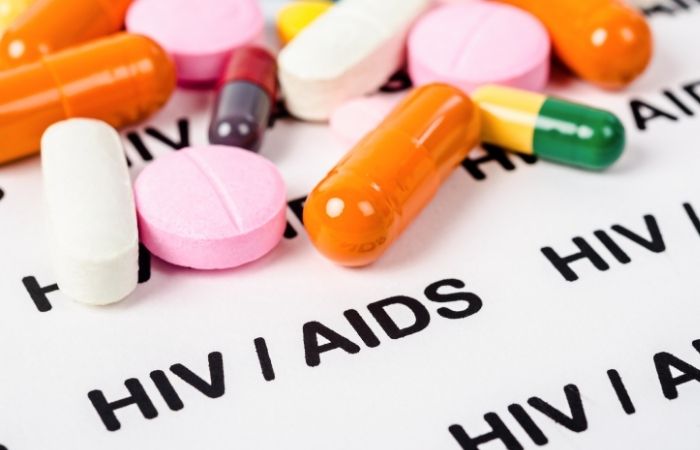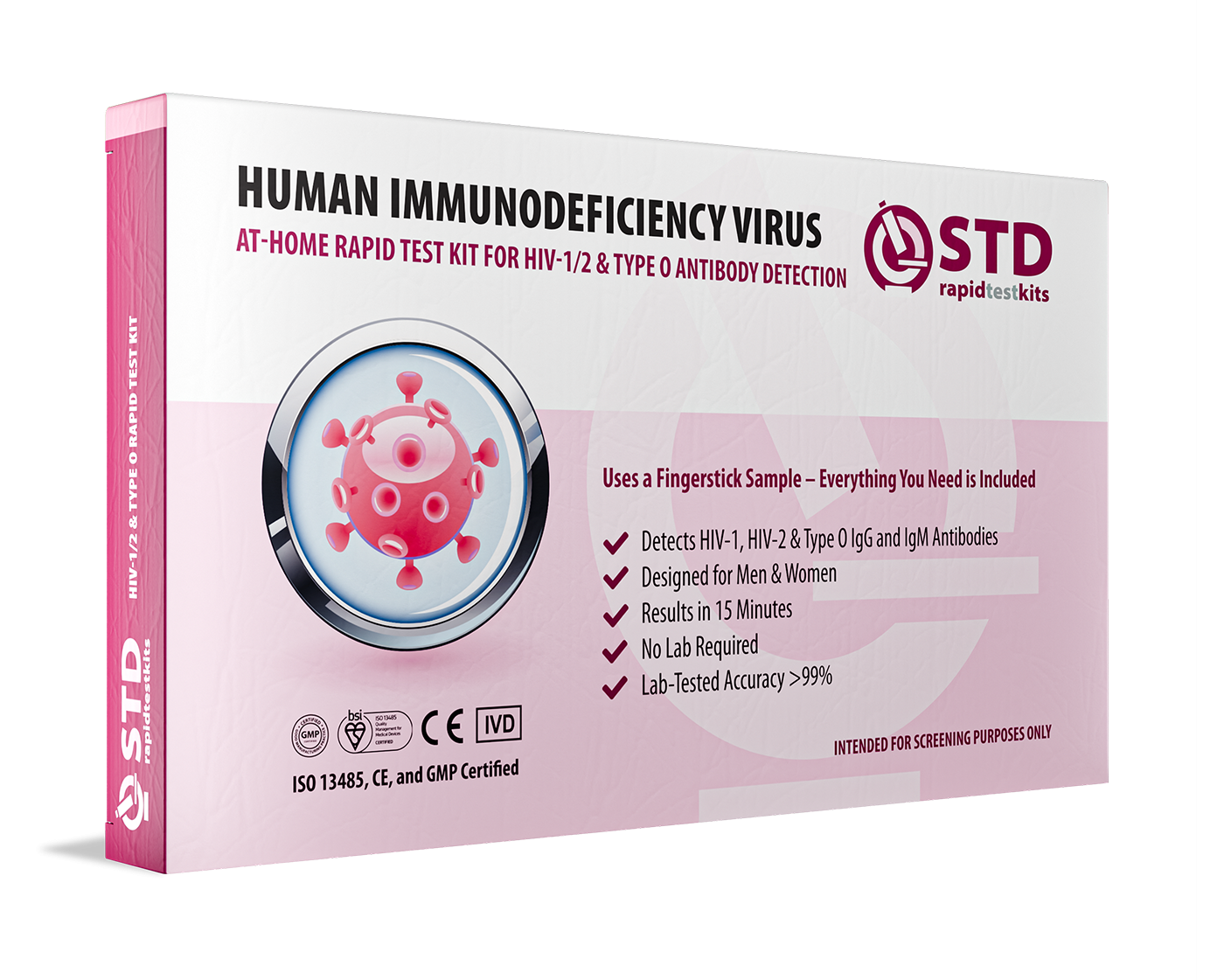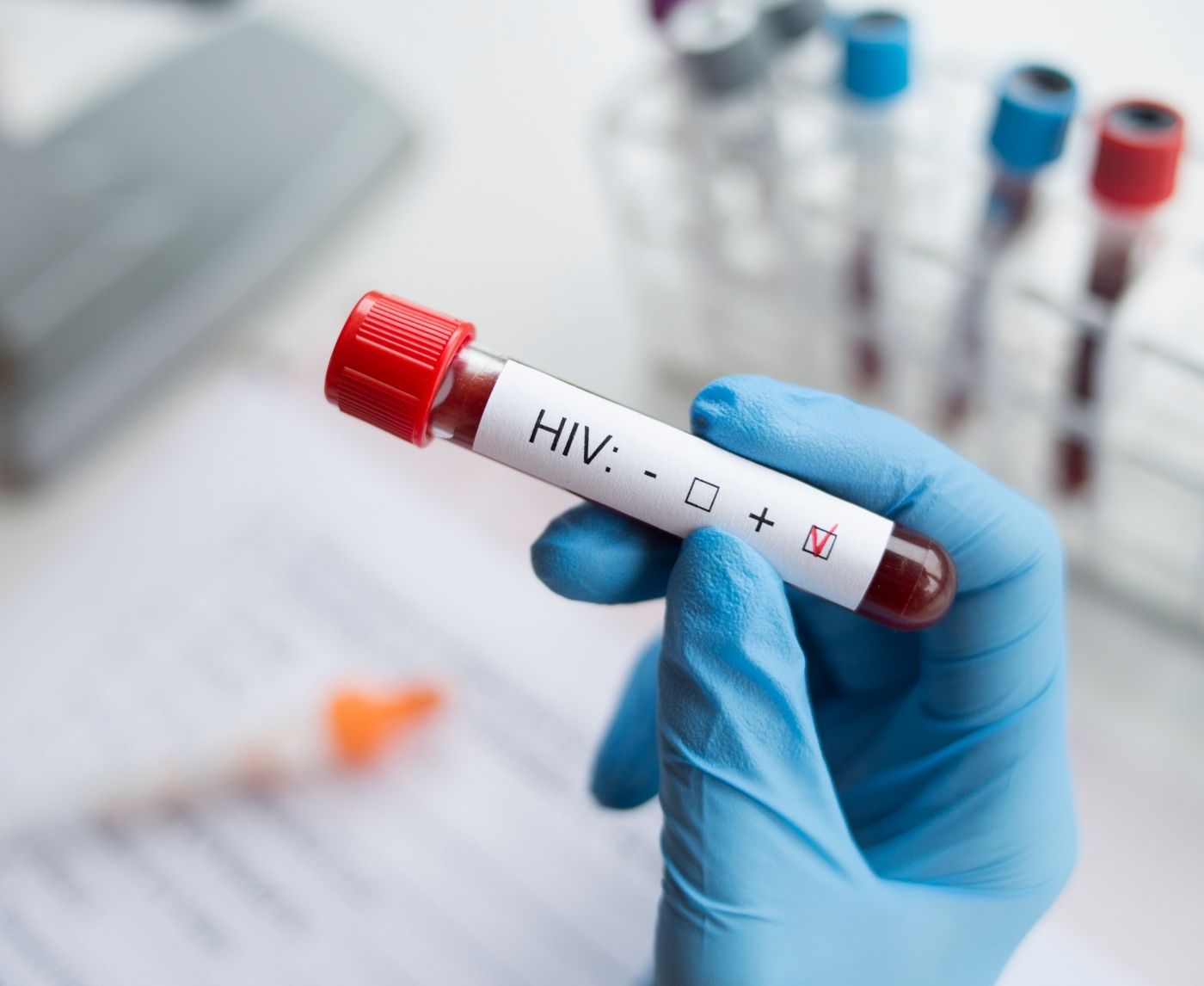Quick Answer: HIV is a virus; AIDS is a condition that develops when HIV is untreated and damages the immune system. You can have HIV without ever developing AIDS, especially with early testing and treatment.
Why So Many of Us Still Get It Wrong
It’s not just a Google problem. It’s a cultural one. “You’re going to get AIDS” was an insult hurled at queer kids in locker rooms for decades. In movies, it was the tragic diagnosis that meant death. And in many under-resourced clinics, the paperwork still says “AIDS test,” even though medically, that doesn’t exist. What they’re really testing for is HIV. AIDS is not a virus. It’s not something you “catch.” It’s a syndrome, a group of symptoms and conditions that arise when untreated HIV damages the immune system so badly it can’t protect you.
Confusion isn’t harmless. When people think HIV automatically equals AIDS, they panic. They delay testing. They avoid treatment. They spiral into shame. Jay did. “I didn’t tell anyone for weeks,” he said. “I thought it meant I was already dying. I didn’t know there was a difference, or that people live with HIV now. I didn’t even Google after I left the clinic. I just shut down.”
It took a sexual health hotline worker to explain the science in plain English: HIV is the virus that causes AIDS, but with treatment, many people with HIV never reach that stage. It was the first time he’d heard that hope had a name. That name was antiretroviral therapy (ART).
HIV vs. AIDS: A Side-by-Side Breakdown
To really get why this matters, you need to see how HIV and AIDS differ medically. Below is a comparison table that breaks it down without jargon, just clarity. This is what Jay wishes he’d seen that day in the parking lot.
| Category | HIV | AIDS |
|---|---|---|
| What It Is | A virus that weakens the immune system over time | A late-stage condition caused by untreated HIV |
| Is It Contagious? | Yes, through blood, semen, vaginal fluids, breast milk | No, AIDS itself isn’t contagious, HIV is |
| Can You Have It Without Knowing? | Yes, for years, often symptomless | No, AIDS includes serious illnesses or low immune count |
| Can You Recover? | HIV is lifelong but manageable with meds | AIDS symptoms can reverse with treatment, but immune damage may remain |
| Common Misconception | That HIV means you already have AIDS | That AIDS is something you catch |
Figure 1: Side-by-side breakdown of HIV vs AIDS. Knowing the difference helps guide better decisions around testing, treatment, and stigma reduction.

People are aslo reading: No, There’s No Vaccine for Chlamydia...Yet. Here’s What You Can Do Instead
When Symptoms Mislead, and the Clock Matters
The biggest trap? Waiting for symptoms. Many people don’t experience any noticeable changes in the early stages of HIV. Some get flu-like symptoms, fever, rash, sore throat, about 2 to 4 weeks after exposure, but they pass quickly and are often blamed on something else. Without testing, people may go years thinking they’re fine. Jay remembered thinking, “I’ve been tired, but who isn’t? I just moved apartments. I thought the weight loss was stress.”
By the time more serious symptoms show up, chronic fatigue, recurring infections, unexplained weight loss, HIV may have progressed to AIDS. The immune system can become so compromised that everyday germs become life-threatening. That’s what AIDS actually is: the immune system’s collapse.
This isn’t just about timelines, it’s about missed chances. If caught early, HIV can be suppressed to undetectable levels with daily treatment. That means no progression to AIDS. It also means you can’t transmit the virus to others sexually, this is the “U=U” message you may have heard: Undetectable = Untransmittable. But that only happens when you test early, and confusion about AIDS often keeps people from testing at all.
Check Your STD Status in Minutes
Test at Home with Remedium7-in-1 STD Test Kit

 For Men & Women
For Men & Women Results in Minutes
Results in Minutes No Lab Needed
No Lab Needed Private & Discreet
Private & DiscreetOrder Now $129.00 $343.00
For all 7 tests
What Jay Didn’t Know Almost Broke Him
After his clinic visit, Jay didn’t fill the prescription for his antiretroviral meds. He wasn’t in denial, he was in despair. “I thought, what’s the point? I already have AIDS. I’m ruined.” It took three weeks and a viral lung infection to get him back in a doctor’s office, where a clinician finally broke it down: “You have HIV, not AIDS. We can manage this. But only if you start now.”
That delay mattered. His initial CD4 count, a measure of immune health, had dipped lower than it should’ve. He didn’t technically meet the AIDS criteria, but he was close. “If I had started meds that day,” he told us, “I wouldn’t have ended up hospitalized.” The misunderstanding nearly cost him his future. That’s not rare. Studies show that stigma and confusion around the word “AIDS” continue to delay testing and treatment globally, especially in rural areas and communities of color.
Stages of HIV: A Timeline Worth Knowing
Let’s walk through how HIV progresses when untreated. This isn’t to scare you, it’s to make the invisible visible. Knowing these stages can help you spot early signs, ask better questions, and seek care before serious damage occurs. If Jay had understood these stages, he would have seen his symptoms as a nudge, not a death sentence.
| Stage | What Happens | Timeline | Symptoms |
|---|---|---|---|
| Acute HIV Infection | Virus multiplies rapidly; body starts to fight back | 2–4 weeks post exposure | Fever, rash, sore throat, fatigue (often missed) |
| Chronic HIV (Asymptomatic) | Virus slows; immune system holds ground if untreated | Several years if untreated | Often none; virus still damages body quietly |
| Symptomatic HIV | Immune decline begins; opportunistic infections appear | Varies, can begin ~5 years in untreated cases | Weight loss, night sweats, fatigue, frequent illness |
| AIDS | CD4 count drops below 200 or AIDS-defining illness occurs | Usually 8–10+ years untreated | Severe infections, cancers, pneumonia, memory loss |
Figure 2: HIV progression stages. Most people never reach the AIDS stage with early testing and treatment, but without it, the virus can remain silent for years.
Testing Changed Everything, And Fast
Three days after his second clinic visit, Jay started medication. It was a single pill a day. Within two months, his viral load dropped to undetectable. Within six, his CD4 count rose to near-normal. “I felt like I got my body back,” he said. “But more than that, I got to start thinking about the future again. I wasn’t dying. I just had something I needed to manage.”
There’s a reason we’re telling his story. Because yours might start the same way. An internet rabbit hole. A weight loss you can’t explain. A friend’s diagnosis that makes you spiral. You deserve answers, not fear-based silence. And it starts with a test. You can get one delivered discreetly, without stepping into a clinic. Order a discreet HIV rapid test kit today and take back the narrative.
If your thoughts are racing, peace of mind is one test away. You’re not broken. You’re informed.
Undetectable Means Untransmittable: What That Really Means
When Jay started dating again, he dreaded the disclosure conversation. “I was undetectable,” he said, “but how do you explain that to someone who still thinks HIV equals AIDS?” His turning point came when he stumbled on a campaign that changed his entire outlook: U=U.
U=U stands for Undetectable = Untransmittable. It’s not a slogan, it’s science. When someone with HIV is on effective treatment and reaches an undetectable viral load, they cannot pass the virus to sexual partners. The evidence is overwhelming. Large-scale studies like PARTNER and Opposites Attract tracked thousands of condomless sexual encounters between mixed-status couples. Not a single transmission occurred when the HIV-positive partner was undetectable.
"I showed my partner the links to the study," Jay said. "He cried. Not because he was scared, but because he knew I wasn't a threat. He could trust me. Testing, treatment, and facts not only protect health, but they also help people get to know each other better.
If you’re afraid of that disclosure moment, remember: confidential testing gives you power. Knowing your status is an act of self-respect, not shame. And being undetectable is something to be proud of.
What It’s Like to Tell Someone You Have HIV (And Still Be Loved)
The first person Jay told after his diagnosis wasn’t a doctor. It was his roommate, a nurse who’d seen more than his share of infectious disease charts. Jay expected judgment. What he got was dinner and a long talk about undetectable viral loads. “He knew more than I did,” Jay laughed. “He told me I was gonna be okay before I believed it myself.”
But telling a partner was harder. He waited until his viral load was undetectable, then sat across from a guy he really liked and said, “There’s something I need to tell you. I’m HIV-positive, but I’m undetectable.” The guy blinked. Then nodded. “Thanks for trusting me,” he said.
That moment changed everything. Jay stopped thinking of himself as a liability. He started thinking of himself as someone who could love and be loved, with honesty, with health, with a future. That shift wasn’t just emotional. It was viral. It changed how he showed up in the world.
Living, Not Just Surviving
Too many people assume an HIV diagnosis means life as they knew it is over. But here’s what real life looks like for someone managing HIV today: one pill a day. Quarterly labs. A viral load so low it can’t be measured. A CD4 count that tells you your immune system is strong. No symptoms. No hospital beds. No fear that a cold could kill you.
In fact, in many places, the leading causes of death for people with HIV are the same as everyone else: heart disease, diabetes, cancer. Because with proper treatment, the virus becomes background noise, a chronic condition you live with, not die from. Just like asthma. Just like high blood pressure.
But that kind of normalcy starts with knowledge. It starts with knowing your status. And it starts sooner than most people think. Every month you wait is a month HIV can do its quiet work. Every month you delay is a month you could’ve been undetectable.

People are also reading: Yes, Grandma’s Still Having Sex, And STDs Are Spreading Because of It
What Testing Really Gives You
It’s not just a result. It’s a reset. Testing is how Jay got his power back. It’s how he went from “I think I have AIDS” to “I’m undetectable, and I’m okay.” It’s how he stopped panicking every time he got a rash or felt tired. It’s how he started dating again. And working. And planning.
You might be reading this and still feel afraid. That’s okay. Fear means you care. But don’t let it turn into silence. Silence is where this virus grows. Testing says, “I’m not afraid to know.” And that kind of courage? That’s how the epidemic ends, not with shame, but with clarity, with access, and with people like you taking the next step.
Take the test. Know your status. And if it’s positive, know that it’s not a death sentence, it’s the beginning of something survivable, treatable, and completely livable.
Click here to order a discreet HIV rapid test kit and start the next chapter on your terms.
Check Your STD Status in Minutes
Test at Home with RemediumHIV Rapid Test Kit

 For Men & Women
For Men & Women Results in Minutes
Results in Minutes No Lab Needed
No Lab Needed Private & Discreet
Private & DiscreetOrder Now $33.99 $49.00
The Danger of Delay, And the Relief of Knowing
By the time Jay’s viral load dropped to undetectable, the only thing that hadn’t healed was his memory of those first few weeks, the panic, the shame spiral, the search history full of worst-case scenarios. “If I’d known the difference between HIV and AIDS,” he said, “I would’ve gotten tested the month I started feeling weird. I would’ve gotten treated faster. I wouldn’t have spent weeks thinking I was dying.”
This is why confusion isn’t just a vocabulary problem, it’s a survival one. When we don’t know the facts, we fill in the blanks with fear. We picture the worst-case scenario instead of the manageable reality. And the longer we wait, the harder it is to unlearn that fear.
But here’s the good news: the moment you take a test, you stop guessing. You stop wondering whether that rash or that weight loss or that fatigue is something bigger. You start knowing. And knowing means acting. Acting means treatment. And treatment means you get to live, fully and unapologetically.
Jay didn’t just get his labs back, he got his mind back. He stopped Googling his symptoms at 2 a.m. He started planning trips, dating again, eating like he wasn’t punishing himself. That’s what testing gave him. That’s what truth made possible.
You deserve that too. Not in six months. Not after one more scare. Right now. Order your HIV rapid test kit and take back your clarity. You might be just one test away from peace of mind.
FAQs
1. Can you actually test for AIDS?
Not directly, and anyone offering you an “AIDS test” either doesn’t know better or is oversimplifying. What you're really being tested for is HIV. If someone progresses to AIDS, that diagnosis comes later, based on immune health and illness history. But the real game-changer is catching HIV long before that. That’s the test you want.
2. What does early HIV feel like?
Honestly? Like a bad flu, or nothing at all. Some people get a fever, a rash, maybe a sore throat. Others feel fine and don't suspect a thing. That’s the trap: you might be carrying HIV without knowing, which is why waiting for “symptoms” is risky business.
3. Does HIV always turn into AIDS?
Nope. That idea is seriously outdated. With today’s treatment, most people living with HIV will never develop AIDS. We’re talking daily meds that can stop the virus in its tracks. No immune crash. No death sentence. Just a new normal, and a long, healthy life.
4. How long does it take for HIV to become AIDS?
Without treatment, it can take 8 to 10 years, sometimes more. But that’s not a ticking clock, it’s a wake-up call. Start treatment early, and that clock never even starts. You get to press pause on progression.
5. Is HIV still a death sentence?
Absolutely not. That’s a relic from the 1980s. Today, someone diagnosed with HIV, especially early, can live just as long as someone without it. And let’s be real: the real threat isn’t the virus. It’s the silence, the stigma, the “what ifs” that keep people from getting tested.
6. If someone’s undetectable, can they still give me HIV?
Nope. Not even a little. Undetectable = Untransmittable. That’s not a marketing slogan, it’s confirmed science. If their viral load is suppressed thanks to medication, they can’t pass it on through sex. Full stop. Trust the data.
7. Is it safe to date, or sleep with, someone who has HIV?
Yes. Safe, respectful, beautiful, sexy, pick your adjective. People living with HIV can and do have full relationships. Between treatment, U=U, and honest communication, there’s no reason to write someone off based on a virus. Love smarter, not smaller.
8. Can you get HIV from kissing or sharing food?
Nope. Saliva doesn’t carry enough virus to transmit it. Same with hugging, cuddling, sitting on the same toilet seat, none of it spreads HIV. Let’s put that myth in the grave where it belongs.
9. What’s the point of testing if I don’t have symptoms?
Because by the time you do feel something, it might be late in the game. Testing isn’t about reacting, it’s about owning your health before anything spirals. Whether you’re sexually active, sharing needles, or just unsure, testing gives you clarity. And clarity is power.
10. If I test positive, what should I do first?
Breathe. Then call your provider, or find one who gets it. You’ll likely get a confirmatory test and start treatment soon after. You don’t need to know everything at once. You just need to take the next step. One pill. One day. One life that’s still fully yours.
You Deserve Answers, Not Assumptions
Jay thought his life was over because he’d heard the word “AIDS.” He didn’t realize he was still in the earliest stage of HIV, a stage where treatment works fast and outcomes are excellent. That one word derailed his sense of self for weeks. And he’s not alone.
If you've been spiraling over symptoms, imagining worst-case scenarios, or silently asking, “Do I have AIDS?”, you deserve real answers. Not Google rabbit holes. Not horror stories from the 1980s. Not shame. Just facts, support, and a next step you can take today.
This isn’t about being dramatic. It’s about getting ahead of something while you still can. HIV doesn’t always announce itself. You might feel fine. You might feel sick. But guessing isn’t the move. Testing is. And it’s never been easier, or more private.
You don’t need to explain yourself to a nurse you’ve never met. You don’t need to sit in a waiting room hoping no one sees you. You don’t even need to leave your house. At-home HIV tests ship discreetly, give results in minutes, and give you the clarity that could change everything.
You don’t have to be brave. You just have to be curious enough to check.
How We Sourced This Article: We combined current guidance from leading medical organizations with peer-reviewed research and lived-experience reporting to make this guide practical, compassionate, and accurate.
Sources
1. HIV.gov – Global Statistics
2. Prevention Access Campaign – U=U Resources
5. HIV and AIDS - StatPearls (NCBI Bookshelf)
6. Undetectable = Untransmittable | CDC
7. HIV and AIDS: The Basics – NIH/HIVinfo
8. What Are HIV and AIDS? – HIV.gov
9. Viral Suppression and an Undetectable Viral Load – HIV.gov
10. Brief Report: Undetectable HIV‑1 Viral Load Among… – PubMed
About the Author
Dr. F. David, MD is a board-certified infectious disease specialist focused on STI prevention, diagnosis, and treatment. He blends clinical precision with a no-nonsense, sex-positive approach and is committed to expanding access for readers in both urban and off-grid settings.
Reviewed by: J. Ellison, MPH | Last medically reviewed: November 2025
This article is for informational purposes and does not replace medical advice.










